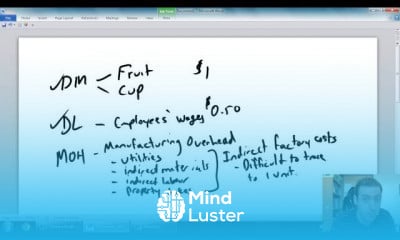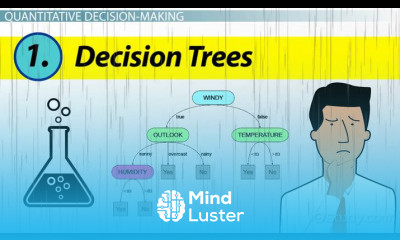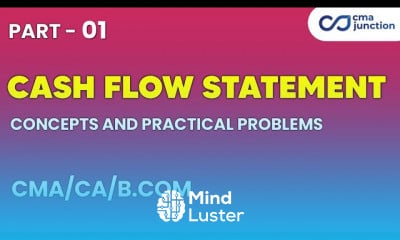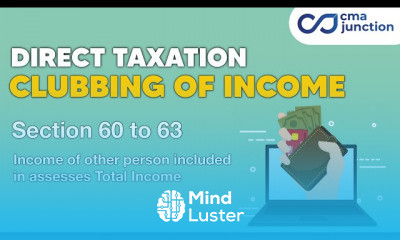Alternative Dispute Resolution
Share your inquiries now with community members
Click Here
Sign up Now
Lessons List | 21
Lesson
Comments
Related Courses in Business
Course Description
What is Administrative Law?
Administrative law is the body of law created by the agencies and departments of the government, which carry out the laws passed by Congress or a state legislature. When Congress passes a law on a complicated issue, Congress often needs help determining all of the details of how the law will be enforced and implemented. Administrative agencies and government departments fill in those gaps for Congress and pass additional rules and regulations to achieve Congress's goals.
People often deal with administrative agencies and administrative law when they apply for government benefits. For example, Congress has passed laws that allow disabled individuals to receive government assistance. The Social Security Administration (SSA) is the administrative agency created to implement Congress's social security and disability laws. The SSA receives applications when people apply for disability benefits, determines who is eligible for the benefits, and passes rules and regulations to ensure that only the people who deserve these benefits receive them.
In addition to regulating government benefits like Social Security, administrative agencies also implement federal and state laws affecting almost every industry. For example, government bodies like the Department of Labor and the Occupational Safety and Health Administration (OSHA) create and enforce workplace safety regulations. The Environmental Protection Agency (EPA) passes regulations and rules to enforce Congress's goal of protecting the environment. States also have their own administrative agencies to implement and execute laws passed by their state legislatures.
People and businesses often need to hire lawyers with expertise in administrative law when an administrative agency denies their applications for benefits or imposes penalties for failing to comply with regulations. Many administrative agencies can create their own courts and appeal processes, which often require the expertise of an attorney to ensure that your case is heard.
Terms to Know
Administrative law judge - A judge who only hears cases related to a specific agency's regulations, such as a Social Security benefits appeal
Agency - A regulatory body established by Congress or a state Legislature, usually given the power to write, monitor and enforce specific regulations
Hearing - An administrative procedure similar to a trial, where an administrative law judge or review board hears evidence and arguments, then makes a ruling on an administrative issue
Administrative Procedure Act (APA) - A federal law that governs how administrative agencies can propose and enact regulations
Code of Federal Regulations (CFR) - An annual publication containing all of the rules and regulations passed by administrative agencies each year
Federal Register - A daily publication containing notices of proposed rules that agencies intend to pass, as well as the final versions of rules and regulations expected to be enacted
For more definitions, visit the FindLaw Legal Dictionary.
FindLaw Newsletters
Stay up-to-date with how the law affects your life
Enter your email address to subscribe
Learn more about FindLaw’s newsletters, including our terms of use and privacy policy.
This site is protected by reCAPTCHA and the Google Privacy Policy and Terms of Service apply.
Important Considerations When Hiring an Administrative Law Attorney
The federal government contains more than 100 administrative agencies spanning practically every subject area imaginable. There are agencies devoted to transportation safety, health care, homeland security, and environmental conservation, to name a few. Because each agency has its own distinct rules, regulations and procedures, it is important that you locate an attorney with experience in your particular issue.
Although rules and regulations passed by administrative agencies are not the same as laws passed by Congress or a state Legislature, they may carry similar penalties if you do not obey them. Many administrative agencies have the power to fine individuals and corporations that fail to comply with administrative regulations.
Many agencies, such as the Social Security Administration, make decisions that can severely affect your rights and benefits. If you are denied the benefits or action you seek, every agency has an appeal process. However, administrative appeal processes often have very complex and specific procedures and rules that you must follow, and skipping one step or missing a single deadline can doom your entire case. That's why it is important to consult a lawyer as soon as possible. An attorney will fight to ensure that all of the proper procedures and deadlines are followed and your rights are protected.
If you have a legal issue involving a state or federal administrative agency, consult an administrative lawyer immediately to preserve your legal rights.
Trends
Facebook Business Page Settings
Python for AI for beginners
Natural Language Processing with Python
Tools and toolbar in Photoshop for beginners
MS Excel
Python programming language
Learning English Speaking
English greetings and responses
React Complete Series
AI fundamentals for beginners
Blockchain development essentials for beginners
Neural network optimization techniques
Excel skills for busines intermediate
CSS basics for beginners
SUM and SUMIF function in excel
Digital media and marketing strategies
Improve english grammar skills
Introduction To Cyber Security
ChatGPT for marketing beginners
Salesforce certified associate
Recent
Python for AI for beginners
Tools and toolbar in Photoshop for beginners
Neural network optimization techniques
SUM and SUMIF function in excel
Machine learning algorithms types
Linux command line essentials
Building a hospital landing page in React JS
Salesforce certified associate
CSS basics for beginners
8x8 LED matrix with arduino for beginners
Building an arduino Light gun basics
Software testing basics for beginners
Video encoding for beginners
Computer security for beginners
Network types for beginners
Compiler optimization techniques
Software engineering basics
Audio editing basics for beginners
FFMPEG advanced techniques
Node based data structures in Java


















